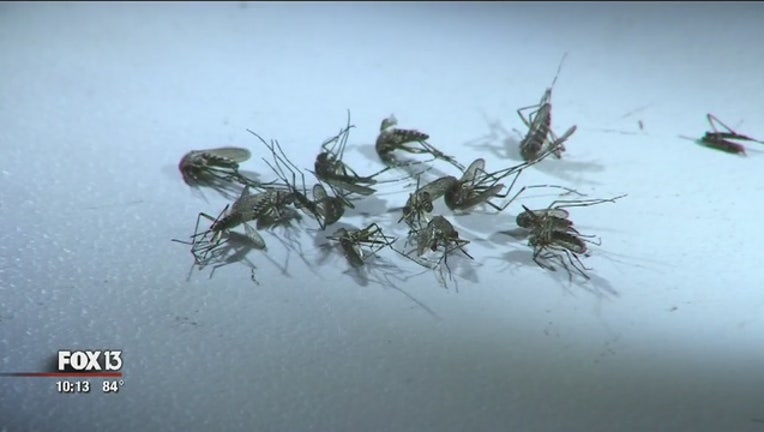CDC: Aerial spraying, naled helped curb Zika in Miami

U.S. health officials said Monday they were ending their strongest warning to pregnant women to stay out of Miami's Wynwood arts district.
No new cases of mosquito-borne Zika illness have been reported in that area since early August, and in the past several weeks mosquito control workers have seen only low numbers of the kind of bugs that are the main spreaders of the virus.
"The message with Wynwood is it was a huge success,"' said Dr. Lyle Petersen of the U.S. Centers for Disease Control and Prevention.
CDC officials credit aggressive aerial spraying with naled, an insecticide that targets adult mosquitoes, and Bti, which kills mosquito larva.
"This outbreak would have kept going without the aerial spraying," Petersen said.
While the CDC lifted its sternest warning to pregnant women, the agency noted that a mosquito transmission zone in nearby Miami Beach grew last week from an area of roughly 1.5 square miles to 4.5 square miles (4 square kilometers to 7 square kilometers), after a cluster of new cases popped up north of earlier reports.
But the CDC isn't exactly advising pregnant women to go to Wynwood. The agency continues to advise that pregnant women consider postponing non-essential travel to all of Miami-Dade County --including the Wynwood area.
Earlier Monday, Florida Gov. Rick Scott visited the Wynwood area north of downtown Miami. In late July the neighborhood became the first place in the U.S. mainland to have mosquitoes transmitting the virus to people.
Scott also credited aggressive mosquitoes control, code enforcement, and cooperating from residents and business that drained standing water helped stop Zika's spread.
Scott said officials are working to stop Zika's spread in Miami Beach. The state Health department late Friday said the infection zone now includes most of the 7-mile-long (11kilometers) island.

